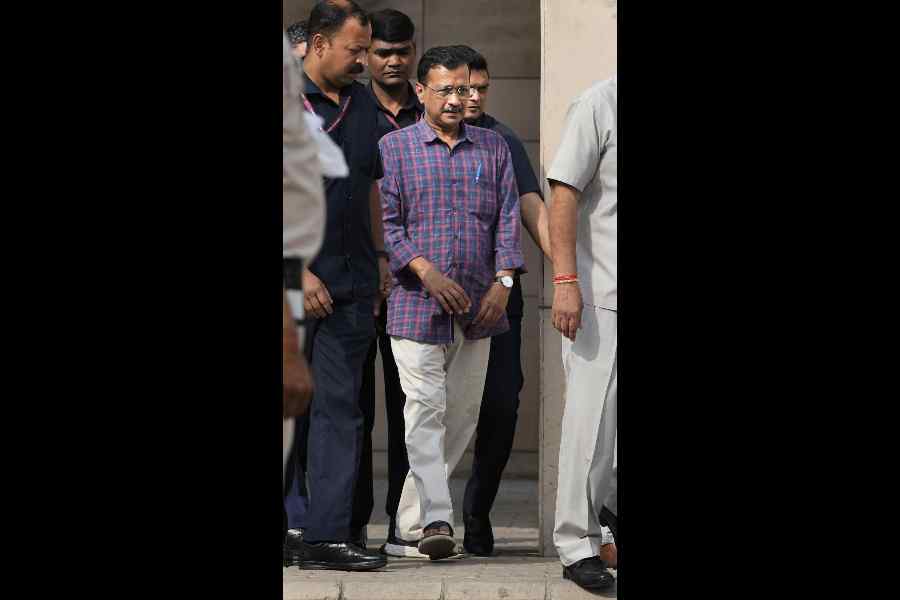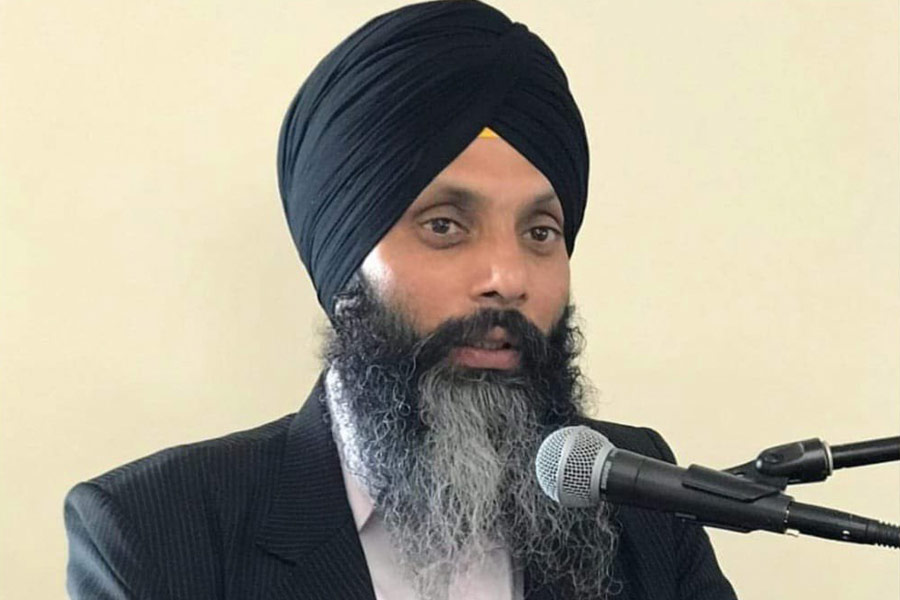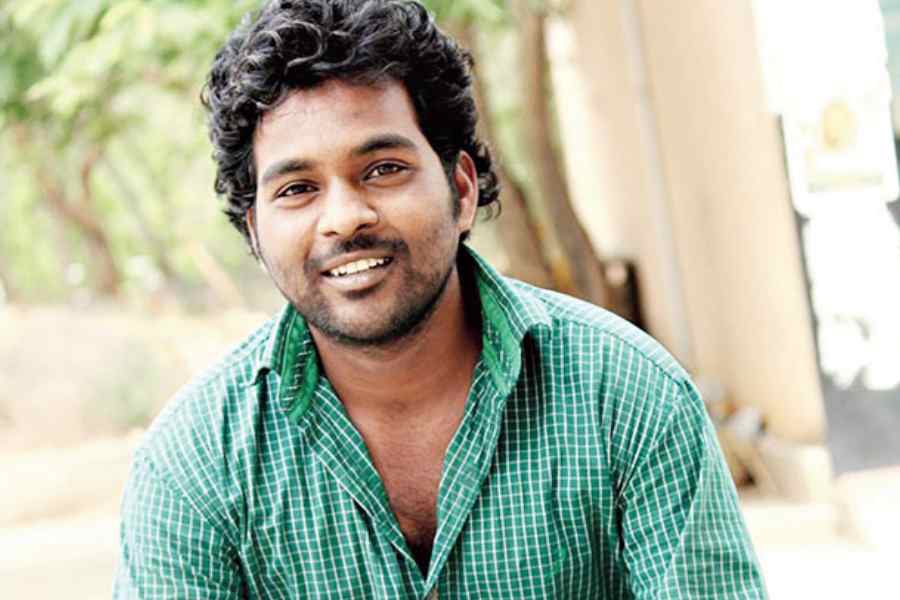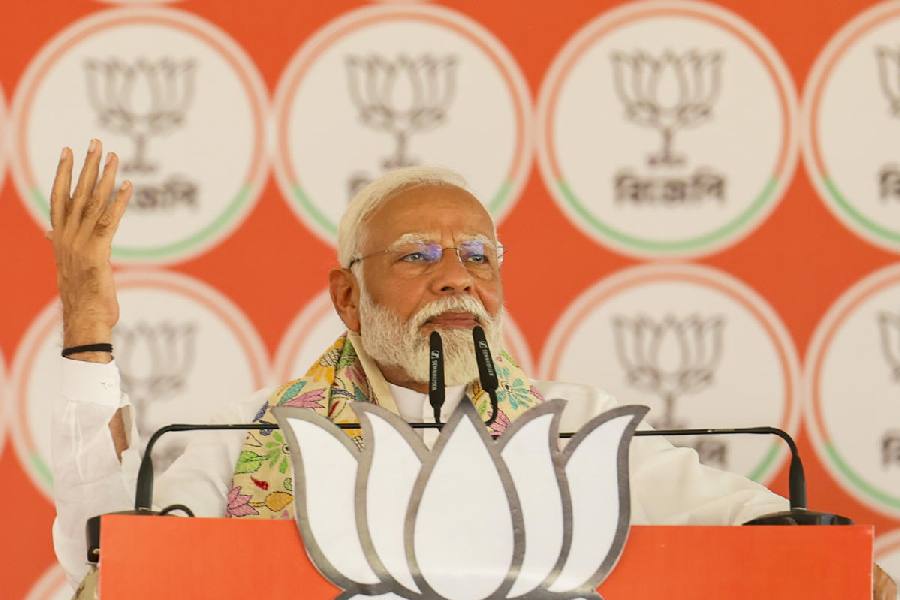It might just be Amazon Prime Video’s biggest project till date, but for every Lord of the Rings fan, it’s a test of the sacrosanct and beyond. The Lord of The Rings: The Rings of Power drifts the narrative back to the Second Age of Middle Earth, where things are calmer and yet more perturbed, simpler and yet more complex.
To take Tolkien onto newer pastures is a tightrope many would not aspire to walk, but for showrunners J.D. Payne and Patrick McKay, it was their imaginative audacity which allowed them to dream, pitch and materialise this.
With a promised canvas of 50 hours, the show dropped its first season on September 2, initiating a wildfire of praise, teasing confusion, expectations and certainly, inexplicable satisfaction on finally getting to see it on screen. It’s LOTR and we would expect no less. Packed with sweeping action, heartfelt emotions, intergenerational power struggle and unparalleled performances, LOTR: The Rings of Power sweeps the audience off their feet and tosses them into the fantastical world of Numenor.
The Asia Pacific Premiere of LOTR: The Rings of Power held in Mumbai, brought showrunner J.D. Payne and members of the cast together for a grand celebration of the series, the Tolkienian vision, and the magnitude of work that has gone into the making of one of the biggest television projects ever.
The dwarves, the elves and the humans are still at it, and so is the despised and deservedly feared Sauron. Intricately layered and grandly mounted, LOTR: The Rings of Power is about an unknown era of a known world, lacing together journeys of characters new and old, in personal discovery, deliverance and debilitation.
In a chat with The Telegraph, showrunner J.D. Payne and members of the cast talked about the collective desire to mount the show, the experience, expectations that come with Tolkienian adaptations on screen, the nuances and much more.
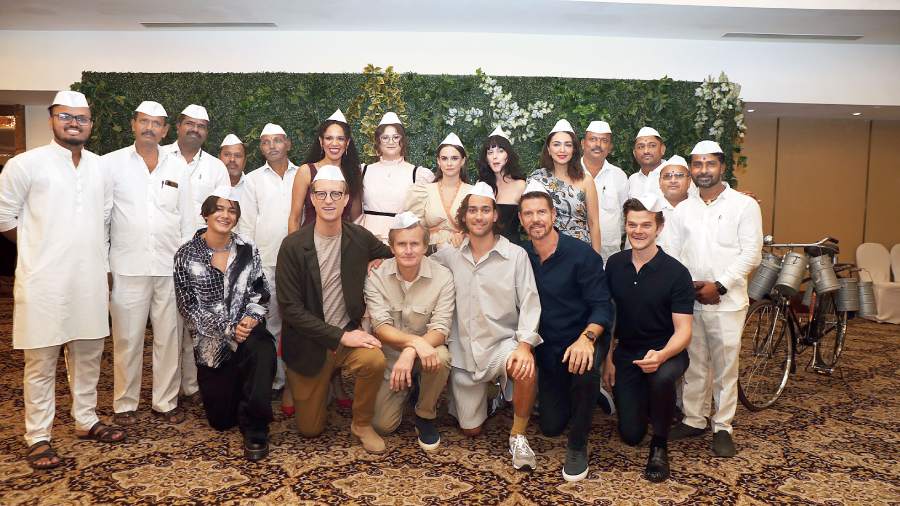
J.D. Payne (in dark coat, front row), the showrunner of The Lord of The Rings: The Rings of Power, with some of the members of the cast of this mega TV series and the dabbawalas of Mumbai
J.D. Payne (showrunner)
Congratulations on the incredible reception. What’s the first thing that comes to your mind when we talk about the journey you have had?
J.D. Payne: Thank you so very much. The reception and the anticipation have been exceptional. And it was wonderful to see how India received us. Talking about the first thing that comes to my mind, it’s how far we have come with the Tolkienian vision in our minds. This came out of the trenches of World War I. While other authors and poets were writing about alienation, Tolkien came up with an extensive world of fantasy in a way which did not sugar-coat the suffering. Tolkien has always been a part of my soul. It’s an untold story of the Second Age, friendship, power dynamic, underdogs, a streak of hope in a dark world, and societal fractures and it would not be possible to bring it to life without the cast. The narrative that we had made sure every character got the space and the time to impress upon people the incredible range of details and nuances they bring to the story.
The casting process must have been incredibly tedious and difficult for something of this scale. How did you get it right?
Payne: Certainly, it was an immensely stretched out process to find the right people for the roles. We had just two criteria in mind. Firstly, they had to be amazing performers and, secondly, they needed to have Middle Earth in them. We auditioned hundreds of performers, but I am proud of the cast that came together. It became a shared dream. And Amazon was extremely supportive during the entire process.
With fantasy productions like these, the soundscape and the visual artistry play very crucial roles. How did you ensure hitting the perfect note?
Payne: Absolutely. We had an incredibly talented crew who ensured that there was a lush audio experience where listening to Middle Earth would be as joyful as watching it. Howard Shore composing the theme, and Bear McCreary composing the music, were absolutely brilliant folks to collaborate with. The same goes for the visual artists and production designers who have come together to put together a splendid amount of work. We had struck a conscious balance between CGI and what we wanted to have on set, which was a massive undertaking and I am really excited to see how the audience perceives the complete visual and aural experience of Numenor that we have tried to offer.
Latching on to that, what were your primary influences when it came to translating the visual aesthetics of landscape to the screen?
Payne: I loved the original trilogy. I had read the books before but it was those films, after which I deep-dived and fell in love. In a way, the vision was different but familiar. We were not interested in coming up with a remake, sequel or a rehash. This had to be a story which stood on its own. We wanted to make it for everyone, even those who are completely uninitiated when it comes to Tolkien’s world and be swept off, just watching the drama visually unfold on the screen.
With staggering numbers involved when it came to Amazon Prime Video’s commitment, shooting during the pandemic must not have made it easier. How did you ensure the pressure of numbers and money did not get in the way of creativity?
Payne: Somewhere, we just felt that the resources were necessary to realise Tolkien’s vision and once-in-a-generation imagination with thousand years’ worth of history from the rise of Sauron, to the fall of Numenor.
And we had 50 hours worth of an imaginative canvas to realise the same and bring it to life. I do not think we would have been able to capture this vast pasture earlier without the resources that we had. And they were immensely helpful and understanding throughout the entire journey. You have to have a few rules in a fantasy world and be rigorous about them. We dreamt big in the writing room and that morphed into reality once everybody got together.

Tolkien has always been a part of my soul. It’s an untold story of the Second Age, friendship, power dynamics, underdogs, a streak of hope in a dark world, and societal fractures.... every character got the space and the time to impress upon people the incredible range of details and nuances they bring to the story
J.d. Payne
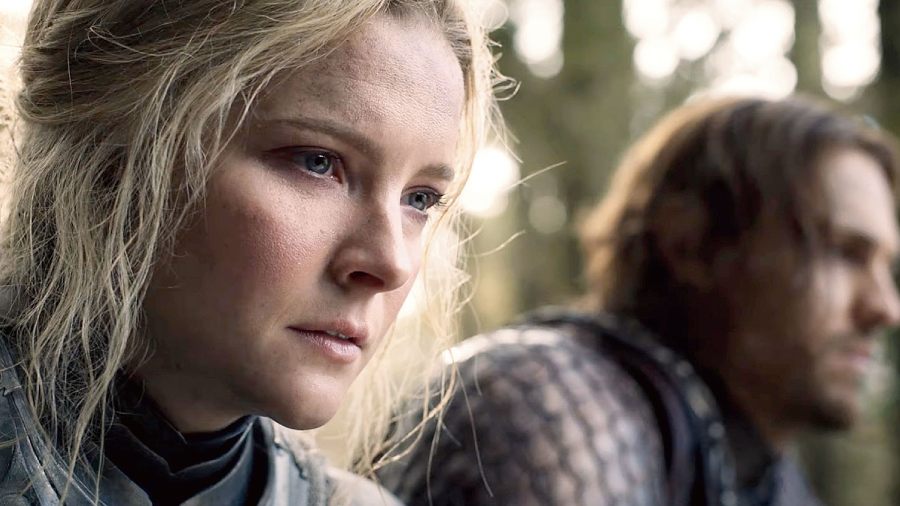
A scene from the TV series The Lord of The Rings: The Rings of Power
Charles Edwards (Celebrimbor) and Robert Aramayo (Elrond)
Charles, how important was it was to bring Celebrimbor’s journey to the screen and how did your background in theatre help you prepare for the role?
Charles Edwards: Doing it for the first time was probably the key element of it and that was incredibly exciting. In terms of approaching the role, I think we have a very brief sketch of Celebrimbor’s character from Tolkien. And that really gave Patrick (McKay) and J.D. (Payne) a lot of freedom to fashion the character and for me as well, to get into the layers. To be the first person to play him on screen was incredible. As for theatre, it certainly did inform my playing of the role. My character is very adept with language and having worked in Shakespearean plays helped me to gain insight into Celebrimbor’s mastery over language and thought.
Robert, with Elrond comes a lot of weight and a baggage of expectations. How did you navigate the character and the narrative coming out of that?
Robert Aramayo: Yeah certainly, there is a lot of weight playing him and he does have a lot of weight on him. Elrond has a very intimidating past and future and so finding him at this point in his journey was really fun. He’s curious, wants to build new relationships, fix old wounds in himself and in Middle Earth. It’s a different look and an absolutely different period. We got to weave new stories and sketch out connections. When I heard I’d be playing Elrond, it was an unbelievable moment for me, but it certainly brought its own challenges and freedom. As an actor, when you are intimidated, you think about how the circumstances are different and how you bring yourself closer to the experience of playing such an iconic character. My passion came mainly from the books and the cast had actually banned me from using the word ‘legendarium’ (laughs), but I think it was exciting to discover the different flavours of the character through my passion
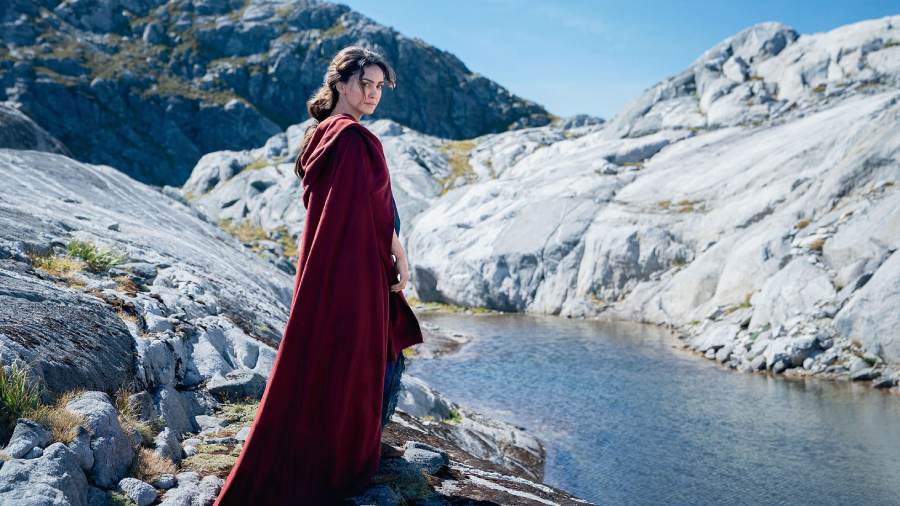
Like most of the characters in the show, Bronwyn is multi-faceted and she, in particular, is a healer and I was a pre-med, so that kind of resonated with me. Outside that, she is also a single mother to her rebellious teenage son (Theo), in a forbidden romance with an elf and her ancestors chose the evil side — Nazanin Boniadi
Nazanin Boniadi (Bronwyn) and Tyroe Muhafidin (Theo)
Nazanin, what do you feel about Bronwyn’s journey through the narrative and do you feel representation, diversity, and casting play very important roles in a show of this stature?
Nazanin Boniadi: Like most of the characters in the show, Bronwyn is multi-faceted and she, in particular, is a healer and I was a pre-med, so that kind of resonated with me. Outside that, she is also a single mother to her rebellious teenage son (Theo), in a forbidden romance with an elf and her ancestors chose the evil side. So, in a way, she tries to redeem that and there are many layers to the character. As an actor, I get to portray the human conditions and as an activist, I hope to bring about changes in human conditions and voice the voiceless. These two go hand-in-hand and define who I am. To answer the second part of the question, I think diversity is of paramount importance and that representation truly matters, but I think the most wonderful thing about our show is that every single character was cast because they were the perfect people to bring them to life. So, that is what I feel about diversity, it is giving a range of performers the opportunity to shine and, hopefully, pave the way for other people.
Tyroe, being the youngest person on the main cast, how was the experience of preparing and working on this huge show and with such brilliant actors?
Tyroe Muhafidin: That’s true and I think I brought a different kind of energy, lingo and freshness onto the set which they caught onto (laughs). To be very honest, I was dearly pampered on set. In terms of preparations, it has been really intense. We tried to come together, put our heads down and focus on the job and the craft, and pluck the pressure out, in a positive way. I, personally, did a lot of research on the men of Tolkien’s worlds and also some real-life experiences which resonated with the character’s journey. I loved getting into character and working out the action sequences. Lastly, being able to play Theo and work with this amazing group of people gave me a lot of confidence and a renewed vision when it came to acting as a profession.
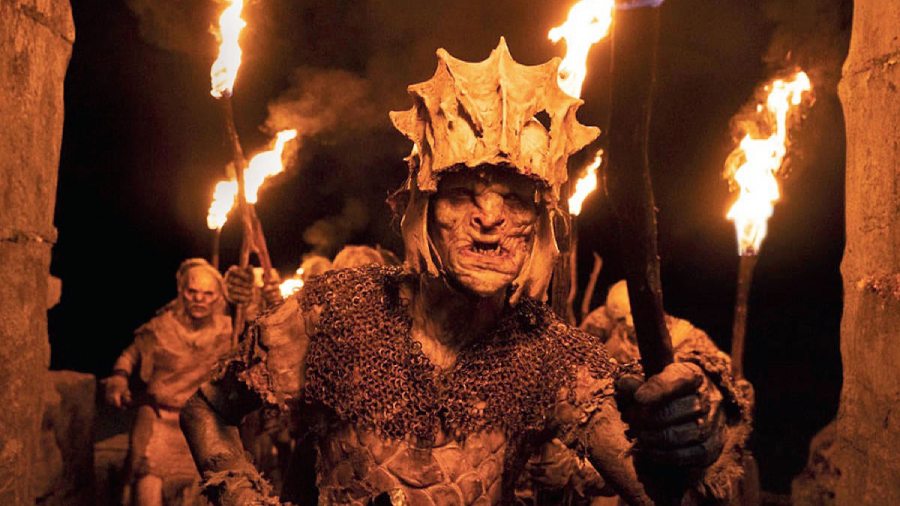
A scene from the TV series The Lord of The Rings: The Rings of Power
Lloyd Owen (Elendil), Ema Horvath (Earien) and Maxim Baldry (Isildur)
The three of you form a very important troika of the Second Age. How well do you think your camaraderie off the set translated onto the screen?
Lloyd Owen: I think quite well actually. The relationship we share on screen was layered and complicated, but off screen, the trust that we were able to build with each other really made it easier for the three of us. We were really comfortable with each other with regards to discussing what we wanted to do and scale together when it came to the Tolkien’s vision.
Ema Horvath: I think spending time with Maxim and Lloyd was the majority of my prep for this job. Being with them really helped me ease into the character and her dynamic. Getting into the character was also about accepting the role of fantasy in our lives and asking the difficult questions about what it means to be human. So, getting together all of that, and asking these questions helped us develop as characters as well.
Maxim Baldry: Lloyd was the father figure off the set as well: overbearing and powerful (laughs). Speaking of the camaraderie, it was a wonderful experience which helped me to settle into the psyche of Isildur’s character and there has been a stable collaborative approach throughout the journey with constructive inputs where we were very much involved in the creative process.
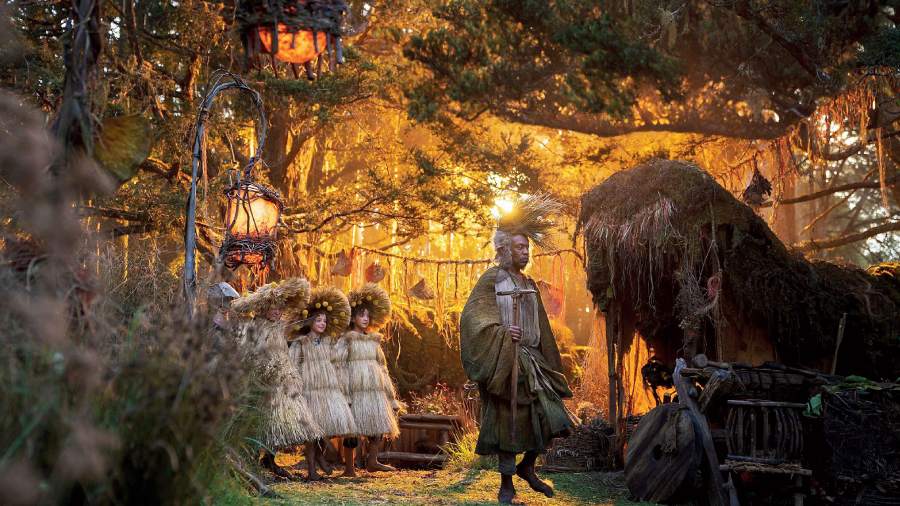
A scene from the TV series The Lord of The Rings: The Rings of Power
Markella Kavenagh (Elanor Nori Brandyfoot), Sara Zwangobani (Marigold Brandyfoot) and Megan Richards (Poppy Proudfellow)
Could you talk about the characters that you play and the way they you related to their individual traits?
Markella Kavenagh: Nori is super curious and inquisitive, but she is also at a place where she feels misunderstood and unheard. She has an interest in the unknown and is also really grounded in the Harfoot reality. She is overly protective of her family and I think that part of it was something that really resonated with me as a person. Poppy and Nori had an interesting and wonderful dynamic, like Megan and I do. The bond runs deep both ways. It was really beautiful and we just wanted to do it justice.
Sara Zwangobani: Marigold is a maternal figure and being a mother, I really resonated with the character. She made me think a lot about the parenting that I am going to face in the days to come and also a lot about the struggle between knowing what you think is right for someone and allowing them to work it out for themselves.
Megan Richards: Poppy is an incredibly loyal friend and is very sarcastic. Those are two facets with which I could relate. After a couple of months of filming, J.D. and I had a conversation where he said they could tweak the character a bit now that they knew what I sounded like. On asking him about what tweaks were being brought upon Poppy, he just said that Poppy was now going to be sarcastic. (Laughs)
Pictures courtesy Amazon Prime Video






